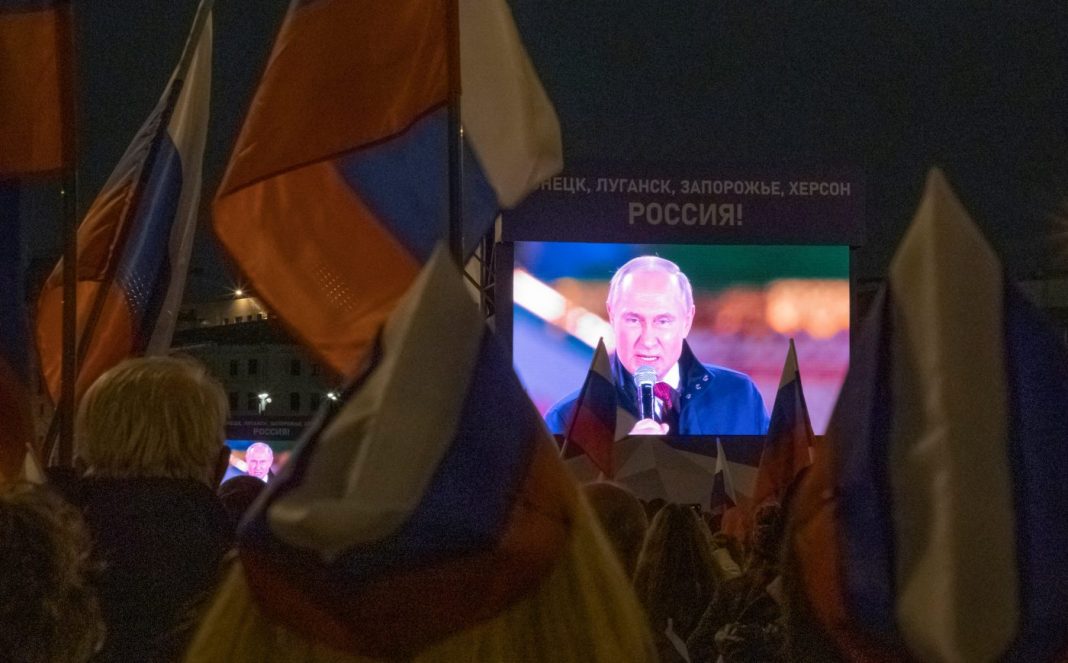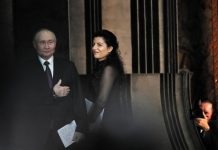Kremlin-minded westerners were quiet for years, but no longer.
By Edward Lucas, for CEPA
President Trump wants the United States to be friends with Russia. The details remain to be seen, and this “reset” may fizzle out like its predecessors. But the effect on public discussion is already visible.
After the full-scale invasion of 2022, it became almost impossible to defend Russia in the mainstream media or politics. No longer. Take this, for example, from President Trump’s latest interview with Time magazine. “From day one.. I think what caused the war to start was when they [Ukraine] started talking about joining NATO. If that weren’t brought up, there would have been a much better chance that it wouldn’t have started.” Trump also called his Ukrainian counterpart Volodymyr Zelenskyy a “dictator without elections” with an approval rating, supposedly, of 4%.
These are Kremlin talking points. They were largely confined to the far left and far right in European countries. The US administration is making them mainstream. A mild version comes in letters to British newspapers, for example, where supposed Russia experts explain that Ukraine must accept whatever deal is on offer, and be grateful that it is not worse.
Others are more forthright. In a full-page column in this week’s Mail on Sunday, Britain’s best-selling Sunday paper, the commentator Peter Hitchens said the public had been systematically lied to about Ukraine, on a scale similar to the claims about weapons of mass destruction that prompted the Iraq war. Although critical of the Putin regime’s nature and behavior, Hitchens argues that Nato provoked the war by expanding and that Ukraine’s president Viktor Yanukovych was overthrown in a lawless, western-backed coup in 2014.
Some of these arguments (Hitchens exemplifies this) stem from moral equivalence. The West is so morally bankrupt it is in no state to preach to Russia, or anyone. The include a phoney Realpolitik, for example blaming the Russophobic “east Europeans” for dragging the rest of us into a dangerous confrontation with Russia. Far better to show the Kremlin some respect, and to promote trade and investment ties (that’s another motive: greed). Then there’s cowardice. As Sir Tony Brenton, a former British ambassador to Moscow, argued in the Times recently, “Ukraine certainly matters, but it is not worth a nuclear war.” In other words, give Putin whatever he wants once he rattles his nuclear saber.
These arguments are not new. But they have new life, at least for now. All the more reason, therefore, to be grateful for “Unfinished Empire” a new book by the Irish academic Donnacha Ó Beacháin, which rightly links Putin’s war in Ukraine to its real roots: Russian (and Soviet) imperialism. Inherently aggressive, this is usually depicted as defensive. The Kremlin demands self-determination for others (especially in rigged elections in neighboring countries), but crushes it ruthlessly at home. Ó Beacháin notes the colonialist character of the Soviet Union (masked in left-wing rhetoric) and also how Russian ethno-nationalism was baked into the foreign policy of even the early Yeltsin era. He laments the shocking neglect of this in academic studies of colonialism and post-colonialism.
The author highlights the trajectory too: for those trying to restore the glory of the “Third Rome,” annihilating Ukraine is only the start. He opens the book by quoting none other than Karl Marx. “The policy of Russia is changeless…its methods, its tactics, its maneuvers, may change, but the polar star of its policy, world domination, is a fixed star.”
Only on one point is the author wrong. Far from confirming Russia’s place at the global top table, he writes, the war has isolated the Kremlin. True once, that confident assertion is now sadly—terrifyingly—out of date.
By Edward Lucas, for CEPA
Edward Lucas is a Non-resident Senior Fellow and Senior Advisor at the Center for European Policy Analysis (CEPA).
Europe’s Edge is CEPA’s online journal covering critical topics on the foreign policy docket across Europe and North America. All opinions expressed on Europe’s Edge are those of the author alone and may not represent those of the institutions they represent or the Center for European Policy Analysis. CEPA maintains a strict intellectual independence policy across all its projects and publications.





